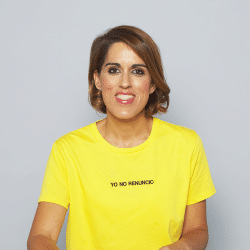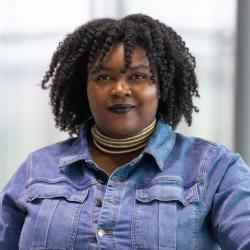Introdução
Juliana is reducing urban carbon emission through releasing citizens’ participation and creativity. Juliana through the Low Carbon City movement generates changes in citizen behavior and mentality based on their participation for collective construction of climate change solutions, as well as through giving tools to companies and local governments for lowering their carbon emission. She articulates the entire ecosystem, public sector, private sector and academy, in renewable energy area. She created a global network aimed on disseminating her ideas, where carbon emission Ambassadors disseminate the programs to cities globally.
A nova ideia
Juliana is able to transform the existent technical language about climate change into a simple one that is understood and owned by individuals, private and public organizations who create actions to both climate adaptation and mitigation. All those actions together create awareness in the public agenda and become inputs for the policymaking.
She is doing that through educating and mobilizing bottom-up citizens’ activities, so that people in cities take environmental responsibility into their own hands. She has developed 6 different solutions targeted to different stakeholders to reduce emissions. Carbon Neutral Events (governments and private organizations), Low Carbon and Resilient Neighborhoods (citizens), Sustainable Mobility Plans (companies), Climate Change Perception Survey (citizens and governments), the program for Engaging Children in Climate Action (citizens, children) and Pin a tree (citizens). All of these solutions are innovative, creative and new in the climate governance in Colombia and Latin America; until now, Low Carbon City is a pioneer. These solutions are powerful because they are bringing participative approaches to an issue that is not yet perceived as a risk or a real problem.
What makes Juliana´s idea, Low Carbon City, different from other like-minded organizations in Colombia, Latin America and the world is that she has a holistic approach to engage people, companies, governments, and all generations (children, young, adults) that goes beyond education. She is able to create multiple solutions along with her communities that have an impact in the policymaking. It means she is generating bottom up solutions and also scaling up her impact to a top down. Juliana works under an inclusive approach that engages the entire city stakeholders without age distinction, from children to elders, businessmen, politicians.
In Colombia and in general in Latin America, climate change is not yet a priority in public agenda because countries have to struggle with other challenges such as the lack of education, poverty, violence, drugs, unemployment, migration, among others, But Juliana through Low Carbon City is doing a good job putting the topic in the public agenda and not only showing that climate change is a matter that governments have to solve but a matter that requires collective action and is very important to address at all levels of society. She also leads a global mobilization to build collective resilience cities and with low carbon emission through her movement Low Carbon City. She creates a governance model based on leader ambassadors in each city to replicate her methodology.
She is implementing a portfolio of diverse evaluation tools documenting her success, and creating new indicators about low carbon cities. Her organization became an acknowledged expert, that contributes to their financial sustainability through partnerships with corporations and local governments and promoting green bonus as part of the new assets created by the emission reduction and by their educational measures.
It coordinates the whole ecosystem, the public and private sector, and the academy, in the areas of renewable energy, waste management, sustainable construction and mobility, urban agriculture, and the use of public space to create low carbon cities with impact on public policies. Juliana uses a holistic approach where education and awareness to people, companies and governments is a starting point and then provides ideas, resources, projects and tools to take action and impact all the ecosystem. That process generates a systemic change.
O problema
Climate change affects our society by impacting social, cultural and natural resources. According to the United Nations “the world’s cities occupy just the 3% of the earth, but they represent between the 60% and the 80% of the energy consumption, and the 75% of carbon emissions”. (Retrieved March 21st, 2019 from https://www.un.org/sustainabledevelopment/es/cities/). Often the focus is on a global challenge that calls for institutions to take action on changing, but that barely involves the citizens in the government of climate change, who are ultimately the main generators of carbon emissions, where Latin America stands out as the most urbanized region.
On the other hand, climate change has a lot of scientific proof that is too academic, which creates a significant gap between the information and the average citizen, which complicates the rise of awareness of daily practices. According to the Survey of Climate Change Perception in Colombia from the Science and Technology Observatory, 80% of the people don’t know or aren’t aware of climate change: in rural zones, 87.6% are unaware of this concept. Moreover, Colombians claim that they feel poorly informed to not informed at all about climate change, and recent investigations are very specialized, and therefore they haven’t been made public. In Chile, a similar survey shows that 65% of the people think they know little about climate change. According to the perception survey of Bangladesh, people interpret climate change according to the climate event they particularly experience, for example, for the 50% of the population, climate change corresponds to cyclones. In the United States 65% of the people consider they should do something more to address global warming.
Citizens and urban infrastructure will also be affected, for example, heat waves can amplify in the cities because they absorb more heat during the day than rural and suburban areas. Cities are more densely populated than rural or suburban areas. In fact, around the 70% the population in Latin America lives in urban areas. As a result, the rise of heat waves, drought, or violent storms in the city would affect a larger number of people. The higher temperatures and the even more extreme events will probably affect the Eolic energy cost, the water, life and health quality in the cities. The inhabitants of the city can also become susceptible to the vulnerabilities of the deterioration of the infrastructure. This includes the sewer system, the transportation system and the energy supply during the peak demand periods, which generally happen during the summer heat waves.
A estratégia
Being socially and environmentally sensitive, in the year of 2013, Juliana joined the Collective “Ciudad Verde”, where she created some solutions for climate change. She realized the need to reduce specialized language used when talking about climate change and rather use everyday language to have an impact on the change of the citizens’ mentality, based on this experience and being conscious that nearly 70% of the emissions are produced in the cities, where 3% of the world’s population congregates. Juliana changed her approach with a different plan of action. In 2015, Juliana decided to create her entrepreneurship based on the actions where the citizens had a leading role in their hometown, Medellín, and in 2017, she formalized her NGO Low Carbon City Foundation https://lowcarbon.city/es/sobre-el-nosotros/. She counts on a paid team of 5 people, 3 interns and 502 volunteers.
At the same time, Juliana recognized that her actions needed to have a global impact and in 2016 she drove a global movement with more than 108 cities to link citizens and experts, exchange knowledge and co-create solutions. Juliana created a permanent communication channel with the leaders and she implemented solutions to reduce emissions and to increase resilience in the communities. To educate people and in order to promote eco-friendly habits with the climate, she has her own methodologies, she bases her tools on very creative collective created strategies, some of which she develops in public spaces with a major media coverage that awakens the interest of citizens as wells as the one from key actors from the ecosystem and from decision makers. Juliana organizes these experiences in a “Tactical Urbanism Guide”, a publication that the network-actors use and also feed through their platform, that has an open data approach like the “climathons”, collaborative mapping and free software. The platform allows to optimize the management with indicators about the project’s registrations, the systematization, monitoring and follow-up. She is working right now in the development of a platform that allows each city to have their own profile and report impact according to the indicators she measures in Low Carbon City. Some examples on how Ambassadors can scale up Low Carbon City work are:
• Villahermosa, México, a region that has been a historical oil and water producer for the rest of the country. They didn’t have climate change in their public agenda, however, after developing the second edition of the Low Carbon City world Forum, La Ciudad Verde México, her Ambassador there created a network of people interested in tackling climate change from civil society, government and private sector. They host talks periodically and organize collective activities such as tree planting, sustainable markets improving local consumption (consuming more local products reduces carbon footprint), and working in sustainable neighborhoods.
• The case of Quito, Ecuador through their Ambassadors Youthab the “Youth construction of sustainable neighborhoods” was one of the winning projects for Habitat III at the I World Youth Conference on Habitat and the Right to the City hosted by UN Habitat. A series of workshops and interventions were developed in the public space, culminating in an intervention during the days of UN Habitat III. The project was focused on the construction of low carbon neighborhoods from the eyes of young people, through concrete actions carried out jointly between the community, the academy, local authorities, NGOs and the Youthab and Low Carbon City teams.
Even though Juliana focuses her strategy on the citizen, she also creates tools for companies for their change of mentality and includes the governments; she develops service projects for the companies and governments through 10 different products. In 2016, Juliana developed a “Neutral Carbon” seal in order that companies promised to make events where they will have previously paid the carbon emission they are going to produce. Low Carbon City has made seven events. The money that is raised is designated to carbon credit, to the planting of trees or for the compensation of projects with partners in the network. In 2018, she held an event for climate finances and she succeeded to add the topic into the public agenda. Juliana, based on the measurements of the avoided and reduced carbon emissions of their projects applied to communities, hopes to create green bonds from the assets created by the low emissions and with that create income for new projects.
Juliana has made significant contributions in the governmental sector. In 2016, in Envigado Medellin they succeeded on including the methodology of low in carbon neighborhoods in the plan for development of the municipality, as a consequence of the country’s first pilot of low in carbon neighborhoods. This performance allowed the modification of the public environmental policy of the Metropolitan Area of del Valle de Aburrá (Comprehensive Air Pollution Management Plan, PIGECA, for its acronym in Spanish) by including follow-up and control mechanisms with clear indicators, with periodic rendering of accounts. Similarly, through the “Green Universities” forum, they managed the transformation of the Environmental Committee of the Department of the Environment; thanks to the participation of the agency SIATA (Early Warning System in English) the metropolitan government of Medellín makes possible the access to the world’s biggest open air quality data platform, OpenAQ, and from this action they got the Colombian government to open its data so data can be compared and codes can be shared.
For the case of Valle de Aburrá (Medellín and 9 more municipalities) the main problem identified collectively was air pollution. Although Medellín was the most polluted city in Colombia, nobody talked about the issue, because the information was too technical, hard to access and the misinformation about the causes and consequences was evident. To call the attention of the city’ stakeholders, Juliana developed an artivism action Breath life campaign, putting masks on the famous Botero’s statues in one of the most touristic, transited and polluted spots in Medellín. At the same time Juliana gave pedestrians surprised by the intervention a recycled souvenir with recommendations on how they could contribute to reduce the air pollution. The action called the attention of national and international media and made the mayor mad because he believed that it would show a bad image for the city. Juliana also invited the government to take urgent actions not only to decarbonize the city but also to open data about air quality.
In 2016, Juliana did the first Low Carbon City World Forum in Medellín bringing solutions, and different actors interested in developing solutions including the government. The 3 day event was a co-creation venue and a meeting point of solutions and opportunities to implement in the city, including turning a main avenue in a pedestrian area, which during the forum was closed to make a pilot, and today 3 years after is already a pedestrian area with bike lanes. During the Forum 3,000 people signed a declaration to request governments to take actions and the Ministry of the Environment committed to the reduction of Colombia’s emissions in a 20% and 30% if they have international support. Also, the Citizen Declaration for The Low Carbon City World Forum was signed by 38 countries, on which they asked the governments from the world to commit with the reduction of emissions, a request that they took to the United Nations in Quito 2016 World Conference of the Habitat.
The Forum pushed her policy makers to start a process that ended up in 2018 with the creation of the Decarbonization Policy of the Metropolitan area of Medellín. While it was developing the normative Juliana was invited to participate in the final deliberations of the Decarbonization in which the citizen voice she influenced this to 1. Include citizen participation and citizen education, 2. Measurable targets and goals, 3. Open Data, and education. Same has happened with the climate change policy of Medellín although is an ongoing process.
Juliana kept developing events to educate people about air quality and spaces for creating solutions and participating in the air quality governance as a result. It is important to mention that these Forums respond to the need to incorporate citizens and cities into the Global Governance of climate change, Juliana realized that Paris Agreement of 2015, citizens and cities do not have an active role, despite the fact that 70% of the world's carbon is generated in cities. The second forum took place in Villa Hermosa With all this momentum, the Ministry of the Environment committed to the reduction of Colombia’s emissions in a 20% and 30%. The second forum took place in México 2017 and the third one in Paris 2018; in the latter a citizen declaration took place, signed by 38 countries, on which they asked the governments from the world to commit with the reduction of emissions, a request that they took to the United Nations. The next forum will be in Costa Rica in 2019. Juliana has gathered over 7,500 people, from 68 countries; it has identified 1,500 solutions in different areas that are being implemented by different stakeholders.
So far in 2019, Juliana has mobilized 36,406 people into citizen action and counts on with 35 allies in the public, private and noncorporate sector. As part of her sustainable strategies she develops service projects for companies and governments. She also sells specialized courses about climate change in partnership with the EAFIT University. She receives donations from her followers through crowdfunding campaigns and international resources for cooperation. In the same way, through the year they search for sponsorship, they are part of the following networks: Smart City Latam, General Assembly of partners, Action LAC, LEDS, LAC Connect4Climate, WeConnect from BID, and Climate Change coalition. She takes part in the United Nations General Assembly and LEDS’ Latin American Assisted Reproduction networks. Juliana has also started a network of mayors committed to climate change, the C40 Cities Climate Leadership Group (C40), of which Medellin is part of and which the Mayor of Lima just joined.
In terms of changing behaviours, the community has signed commitments related to change their diets, use public transport, use bikes, stop the use of single use plastic, etc.. Juliana has also pushed policy making such as the decarbonization plan of the Metropolitan Area in Medelín. The inclusion of Low Carbon Neighborhoods as part of the government Plan of Envigado City, the participatory process of the Climate Change Plan in Medellín, recently released (here the publication). Inspired by her work and events to educate and connect, other organizations have been created to promote climate action locally such as climate entrepreneurs (i.e. Energía Vectorial who transform gasoline cars into electric), activist groups (such as “ciudadanos por el Aire” who organize protest and activism for clean air in Medellin). Universities are working on decarbonizing their campus under the framework of “Green Universities” their brand to promote actions from universities, the best examples are EAFIT University, who is creating biodigesters for treating organic waste, growing their own food, binding plastic, prohibiting the access of cars in specific days, spreading parking for bikes, and including climate change in their curriculums; and Pontifical Bolivarian University, who are already a carbon neutral university, besides implementing similar actions to EAFIT they measure the CO2 emissions and compensate by planting trees in Colombian Forest. Companies are promoting actions to engage their employees in climate actions in their cities, the case of Grupo Argos, who is developing a contest to identify solutions from their employees that can be implemented in their cities.
By the end of 2019, Juliana will have her new platform ready. By the year of 2021 she plans to reach 10 more neighborhoods and to replicate this experience in resilient neighborhoods in Mexico with a “set of tools” for low emission cities. By 2024, she plans a network of more than 500 cities from around the world represented by Low Carbon City ambassadors. She also hopes to reach step by step more 150 thousand people with her online toolkit in 10 years.
Juliana believes that consulting and achieving children’s participation is what guarantees the sustainability in climate change, that is why she has co-created with the EAFIT University the Children Manifest for sustainable cities, involving other organizations and community leaders to raise awareness and mobilize kids into climate change. This Manifest was discussed in the Municipal Council as an input of public policy.
A pessoa
From an early age, Juliana was involved in social causes when she would go with her parents, who were doctors, to missions in vulnerable communities. In school, she had leadership roles and worked for students rights. At 15, she was a volunteer at the Red Cross within the first aid area as a brigadier of her school. In university she studied Finance and International Relations. She was the representative of the School of Finance and she was the one who supported the management of financial support to help students. At the age of 19 she became part of the AIESEC; she worked in multicultural projects and she participated in the Amnesty International in Chile.
Since 2013, when she finished her master’s degree in “Cities and Climate Change”, she found the great potential cities have to become the driving force of solutions for climate change. She then becomes part of the Collective “Ciudad Verde” (Green City). She also has political science and geopolitics major, with a master’s degree in environmental management and another one in international studies (cooperation and development) from the Korea University. Echoing Green awarded her, support and seed money. The Collective gave her leadership skills. She won the award by the 2016 MIT Climate CoLAB for the citizens participation approach and for the behavioral change. Since 2017 AVINA acknowledges her project in the neighborhoods. Her entrepreneurship has reached cities like Santiago de Chile, Medellín, Guatemala City and Tegucigalpa. Multi-country Tactical Urbanism Knowledge and Impact Measurement Tools for the Modernization of the Country Transfer Project, Social Development and Environmental Protection. Juliana is a well-known leader in the city of Medellín and has international outreach with the acknowledgement through the movement she is leading with the activation of the Low Carbon Cities World Forum, which this year will celebrate its fourth edition. Juliana plans on having an impact on the international agreements on carbon dioxide in the near future.




